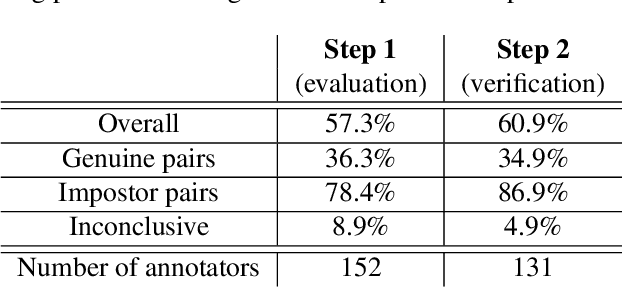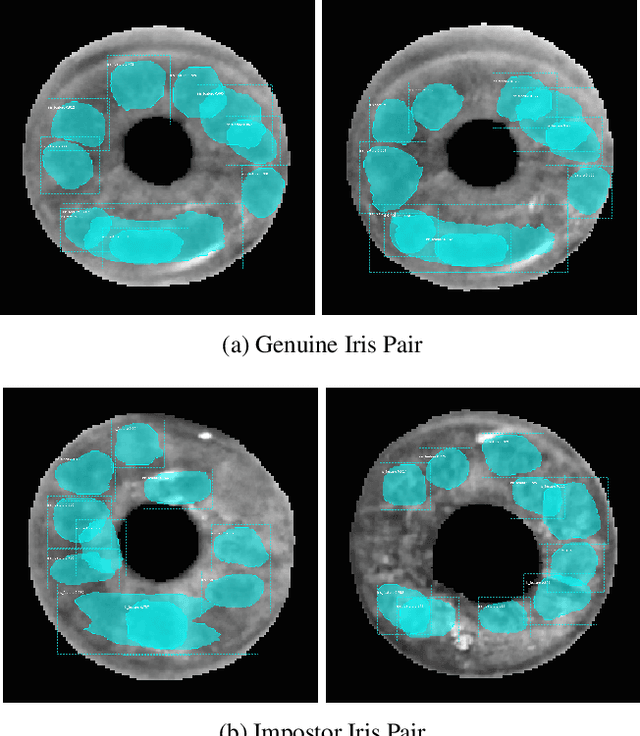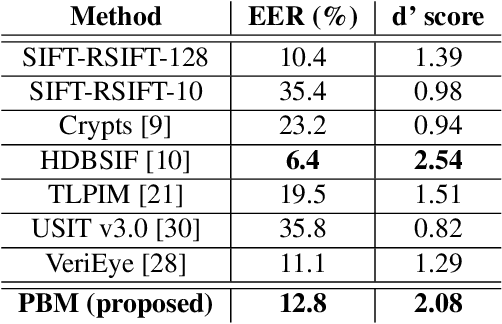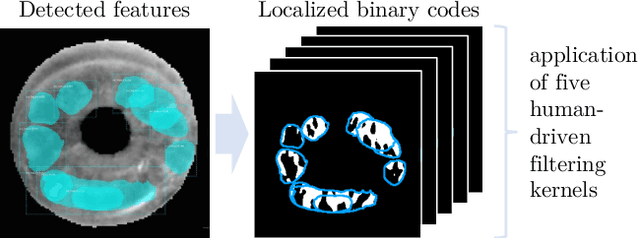Human Saliency-Driven Patch-based Matching for Interpretable Post-mortem Iris Recognition
Paper and Code
Aug 03, 2022



Forensic iris recognition, as opposed to live iris recognition, is an emerging research area that leverages the discriminative power of iris biometrics to aid human examiners in their efforts to identify deceased persons. As a machine learning-based technique in a predominantly human-controlled task, forensic recognition serves as "back-up" to human expertise in the task of post-mortem identification. As such, the machine learning model must be (a) interpretable, and (b) post-mortem-specific, to account for changes in decaying eye tissue. In this work, we propose a method that satisfies both requirements, and that approaches the creation of a post-mortem-specific feature extractor in a novel way employing human perception. We first train a deep learning-based feature detector on post-mortem iris images, using annotations of image regions highlighted by humans as salient for their decision making. In effect, the method learns interpretable features directly from humans, rather than purely data-driven features. Second, regional iris codes (again, with human-driven filtering kernels) are used to pair detected iris patches, which are translated into pairwise, patch-based comparison scores. In this way, our method presents human examiners with human-understandable visual cues in order to justify the identification decision and corresponding confidence score. When tested on a dataset of post-mortem iris images collected from 259 deceased subjects, the proposed method places among the three best iris matchers, demonstrating better results than the commercial (non-human-interpretable) VeriEye approach. We propose a unique post-mortem iris recognition method trained with human saliency to give fully-interpretable comparison outcomes for use in the context of forensic examination, achieving state-of-the-art recognition performance.
 Add to Chrome
Add to Chrome Add to Firefox
Add to Firefox Add to Edge
Add to Edge